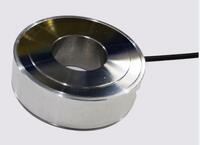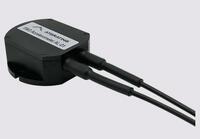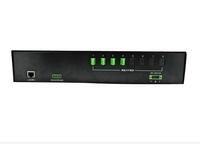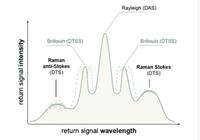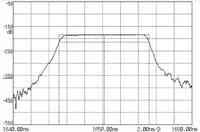AtGrating FBG Products
Specifications
Based on FBG sensing technology, FBG optical fiber products are widely used for testing and monitoring safety and health through the variation of particular wavelength of light, passive driving,
long time stability, and sensibility, which can be applied to any harsh environment.
Types of FBG Products
FBG Reflector
Fiber Bragg Grating (FBG)
FBG Array & Cable
FBG Packaged Sensor
Optical Fiber Sensing System
Advantages of AtGrating FBG Products
Simple and Light
FBG sensor is simple in structure, small in size, light in weight, and variable in shape. It is suitable for burying in large structures. It can measure the stress, strain and structural damage
inside the structure, with good stability and repeatability.
Compatibility
There is natural compatibility with optical fibers, easy to connect with optical fibers, low loss, good spectral characteristics, and high reliability.
Non-conductive
It is non-conductive, has little impact on the measured medium, and has the characteristics of anti-corrosion and anti-electromagnetic interference, which is suitable for working in harsh
environments.
Lightweight and Soft
Lightweight and soft, multiple gratings can be written in one optical fiber to form a sensing array, which is combined with wavelength division multiplexing and time division multiplexing systems
to realize distributed sensing.
Anti-interference
The measurement information is wavelength-coded. Therefore, the FBG sensor is not affected by factors such as light intensity fluctuations of the light source, fiber connection and coupling loss,
and changes in the polarization state of light waves, and has strong anti-interference ability.
High Sensitivity
High sensitivity and high resolution.
Fiber Sensing Technology
Due to the intrinsic characteristics of optical fiber: good reliability, strong anti-interference ability, anti-electromagnetic interference, anti-corrosion, can work in harsh chemical environment,
strong multiplex, etc.
Fiber Sensing Technologies are widely used in civil, industrial, areas, research, biotech, national defense, etc nowadays.
FBGs technologies can be generally divided into three categories: interferometric, distributed, and grating-based as shown in below figure. Each category has a large variety diverse types of
measurements and applications.
Their evaluation of common Fiber Sensing Technologies is summarized below in below table.
- Country: China (Mainland)
- Business Type: Manufacturer
- Market: Americas
- Founded Year: 2010
- Address: 5F, Building B, Chiwan Industry Park, Shaodi Road, Shekou, Nanshan, Shenzhen City
- Contact: at grating


